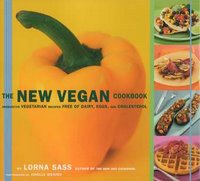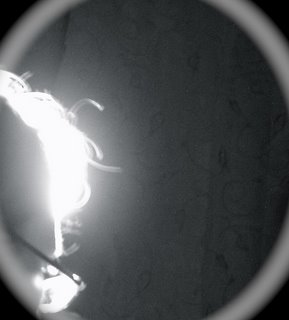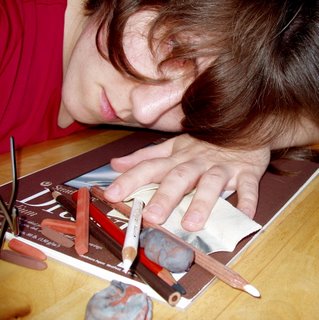I gather, from reading others' blogs, that memes are guilty pleasures. You resort to them when you're too tired to think of something original to say. The assumption is that there are such a think as a purely original idea and a purely imitative one, and that the former is good and the latter bad. I find this assumption peculiarly American. I succumb to it too, and that dismays me a little bit because it shows me how deeply I've changed in the years I've lived here, how my sense of history has eroded. I had misgivings about using a meme (I found this one at
Maven Haven's) but I talked myself into going ahead with it anyway. Good things come from imitation; just ask Aristotle.
ACCENT: Romanian. I often wonder what I sound like to native speakers of English, and how much their idea of me is shaped by my imperfect pronounciation and the occasional grammatical mistakes I make.
BOOZE: I can't drink much at all without dire (physical) consequences so I sip from the same glass for an hour and gulp down large quantities of water with my drink. I like gin and tonic the most, and a banana-flavored beer that I discovered at Trader Joe's a few months ago.
CHORE I HATE: Cleaning the bathroom. All the hair (my own hair!) that accumulates in there makes me sick.
DOGS/CATS: I don't get along with animals. I don't like the idea of having pets, of imprisoning them in human houses for our own human pleasure. However, I read recently that the ability to be domesticated (which only a very small number of animals on the planet have) can be an evolutionary advantage; domesticated animals reproduce with more security and in higher numbers (though some, like pigs and cows, pay dearly for that by being slaughtered for food).
ESSENTIAL ELECTRONICS: I know it doesn't belong in electronics, but it uses electricity so here it is: I love my washing machine. I love it more than my computer and my electronic dictionary because I can't imagine my life without it.
FAVORITE PERFUME: Absolutely none. The smell of clean skin is the headiest I can imagine.
GOLD/SILVER: I'm excited about growing old and having silver hair that I will wear, with the courage given to me by age, in a very short haircut, like Judi Dench (on whom I've had a relentless crush for years).
HOMETOWN: Oradea, Romania.
INSOMNIA: I wish I had it, so that I could spend more time reading.
JOB TITLE: None.
KIDS: I'm slightly afraid of other people's children, and awfully afraid of having my own. I don't know how to behave around them.
LIVING ARRANGEMENT: Happily, with Husband, in a condo with a big beautiful kitchen and an office stuffed with books.
MOST ADMIRED TRAIT: I honestly don't know.
NUMBER OF SEX PARTNERS: Um, no. This is not the place to say.
OVERNIGHT HOSPITAL STAYS: Three that I can remember. As a child, I spent a lot of time in the hospital, once with one of those infectious diseases you're supposed to be vaccinated against, once with an illness of the digestive system, and once with a tubercular infection.
PHOBIAS: Claustrophobia, but not very bad.
QUOTE: From a poem by Mary Oliver: "I don't know/what death's ultimate/purpose is, but I think/this: whoever dreams of holding his/life in is fist/year after year into the hundreds of years/has never considered the owl--/how he comes, exhausted,/through the snow,/through the icy trees,/past snags and vines, wheeling/out of barns and church steeples,/turning this way and that way/through the mesh of every obstacle-- /undeterred by anything--/filling himself time and time again/with a red and digestible joy/sickled up from the lonely, white fields--/and how at daybreak,/as though everything had been done/that must be done, the fields/swell with a rosy light,/the owl fades/back into the branches,/the snow goes on falling/flake after perfect flake."
RELIGION: Although I don't go to church any more, although I'm agnostic about God, I still think of myself as Orthodox Christian. The Orthodox church is still a part of me although by any measure I'm not part of it. I find that strange and illogical and immensely reassuring.
SIBLINGS: A younger sister. It puzzles me how complicated and unpredictable and rewarding my friendship with her is.
TIME I USUALLY WAKE UP: Between 7 and 8. I wish I could get up between five and six because early morning, when it's still quiet outside, is my favorite time of the day. It feels like sacred time.
UNUSUAL TALENT: None.
VEGETABLE I REFUSE TO EAT: None.
WORST HABIT: Worrying.
X-RAYS: This reminds me of
The Magic Mountain by Thomas Mann. A character looking for the first time at an x-ray of his body is an occasion for Mann to talk about seeing and how science has removed the barriers to seeing inside one's own body. It's a stunning passage and a stunning book.
YUMMY FOODS I MAKE: Vegan pound cake is my personal favorite.
ZODIAC SIGN: Virgo. In the Chinese zodiac I'm a Dragon, which amuses me no end because I see absolutely nothing dragon-like in myself.











